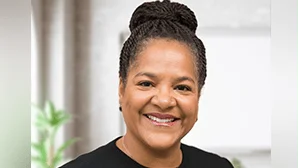GRAND RAPIDS, Mich. – Housing is an issue that impacts all urban areas across America. In Grand Rapids, City officials, community leaders, various levels of government and developers are teaming to ease the impact of the housing crisis.
Over the past decade, more than 100 Grand Rapidians have volunteered their time serving on groups such as the Great Housing Strategies and the Housing Advisory Committee. Each initiative prompted revisions to City policies and ordinances that promoted creation and access to all levels of housing, but primarily affordable housing.
Despite advancements to remove barriers and make housing development easier in Grand Rapids, the demand for housing is outpacing development.
Housing remains a key focus of the City – something that’s imbedded in its strategic plan. In July 2020, the City commissioned a study that showed nearly 9,000 housing units — apartments, condos, single-family homes — were needed by 2025 to meet demand and avoid displacing residents. Progress is being made toward that goal – 1,045 new housing units have been added since that time, with more than 1,000 additional units reserved for low- to moderate-income residents currently planned and in various stages of pre-development. In the wake of the pandemic, developers are struggling to meet demand due to labor shortages, high material costs, rising land acquisition costs and inflation.
The City of Grand Rapids’ Development Center reports these 1,045 new housing units include:
- 690 rental units in multifamily developments
- 355 new one- to two-family homes comprising a mix of owner-occupied and rental units.
- $3 million to improve conditions of existing housing. This will support:
- Repair or rehabilitation of 690 homeowner housing units
- More than 3,800 housing units brought into compliance with various codes, ordinances or historic preservation standards.
- $150,000 to improve access to affordable housing. This will provide:
- 4,700 people with fair housing education
- 300 people with legal counseling or representation on a housing related legal matter
- $60,000 to resolve episodes of homelessness. This will ensure:
- Intake assessment services for 7,000 people to create a plan to resolve homelessness
Investment of these funds for rent assistance or other financial assistance to get into or stay in housing will result in:
- Construction of 207 new affordable rental units and four affordable homeowner units
- 70 households remaining stably housed
- 350 households obtaining or retaining permanent housing
- 64 households being averted from homelessness and 80 households exiting homelessness
- 50 unsheltered persons receiving case management services
- 500 people in vulnerable populations obtaining fair housing supportive services
“There also is a lot of interesting work being done on the regional level and we are in talks with our partners to determine how we can coordinate more in the future,” she said. “The City of Grand Rapids really works to streamline permitting processes and makes it relatively simple and straightforward for developers to go through the process to get building permits. We are cutting those costs and reducing that relative cost on the overall project. But there are other factors that impact the cost of construction. The Community Master Planning process is going to dig in with community engagement to explore what more the City can do to add residential density as part of our overall response to growth, balanced with other local priorities.”
Ryan Kilpatrick, the City’s housing practice leader with Housing Next, agreed saying we are getting very good at providing more housing supply at all price points in the city of Grand Rapids. He explained that more production is needed, not only in the city of Grand Rapids, but all across Kent County and throughout West Michigan.
“The entire region is falling short of its numbers, but I think the City of Grand Rapids can be really proud of the work that has been done to increase capacity to create more supply and prioritize affordability alongside market rate housing for a good healthy balance. The City has done an outstanding job of supporting and encouraging use of State Housing Development Authority (MSHDA) programs. We have a great group of local non-profit and for-profit organizations that build affordable housing in the city. I think Grand Rapids is doing as well or better than any community in the state when it comes to new or affordable housing construction.”

Original source can be found here.




 Alerts Sign-up
Alerts Sign-up